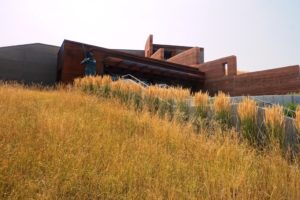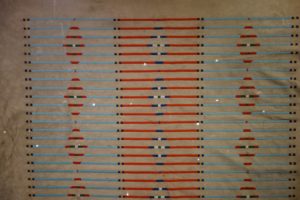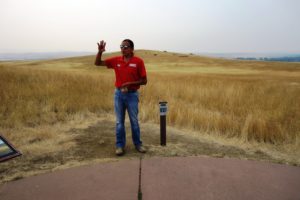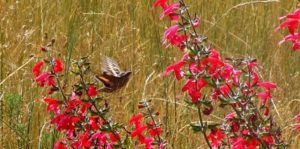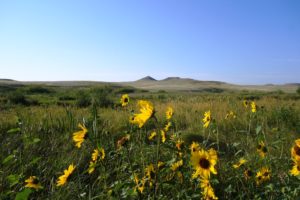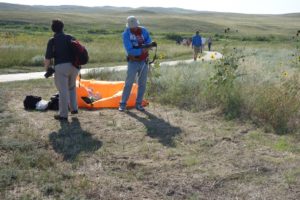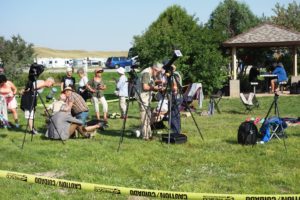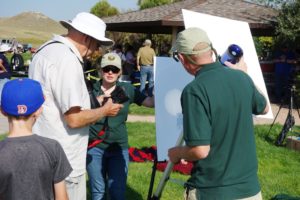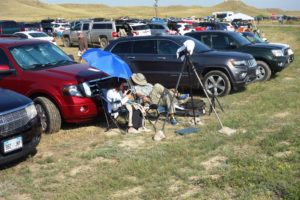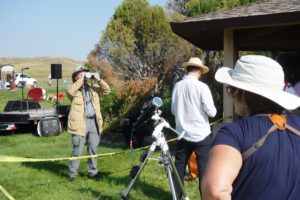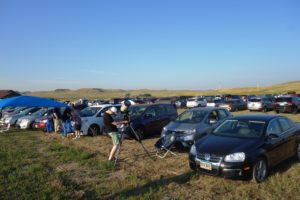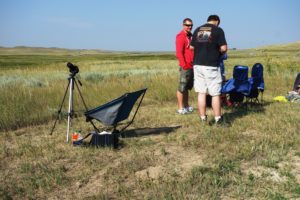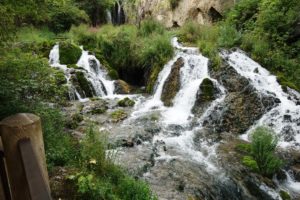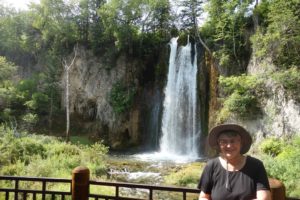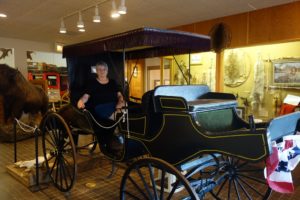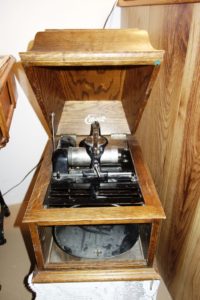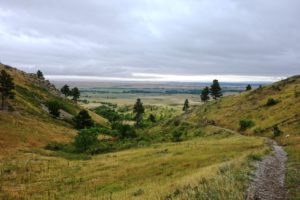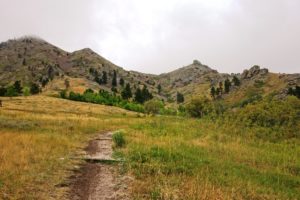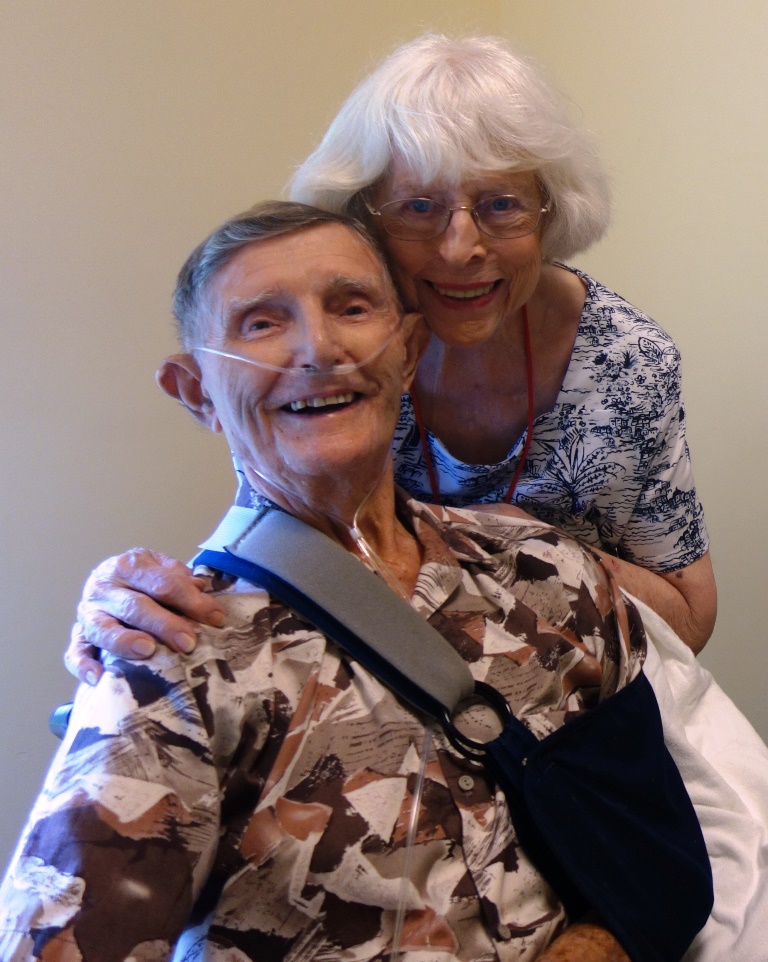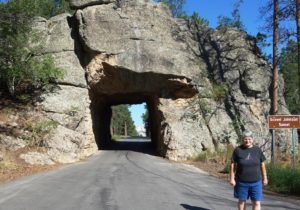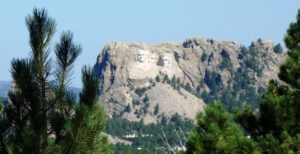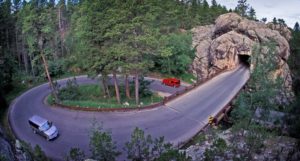We visited Little Bighorn Battlefield this weekend. It’s too far for a one day trip, so we stopped in Sheridan, WY. While there, we visited the Brinton Museum. This museum is set in the middle of ranch land. Most streets are gravel. Buildings are obviously working farm buildings. When one finally arrives at the Brinton, one finds an ultra-modern building totally out of place with its surroundings. The backbone of the building is a rammed-earth wall which supposedly is built like the wall of China and will supposedly last 2000 years. One end of the wall symbolically encoumpases the Bighorn Mountains. The other symbolically encoumpasses an ancient medecine wheel. Actually, nobody knows the significance of the medicine wheel. It’s just a name. If you’re into this kind of stuff, there’s information at this link: http://thebrintonmuseum.org/feature/feature-2/. What I noticed is that the building was built with funds from one donor. Their revenue almost covers the payroll.
Whatever the long term prospects of the Brinton, their exhibits are stunning. This buffalo hide blanket is typical. (The white circles are an artifact of the lighting and glass cover.) The placard described the symbology of the colors and design. I found this design striking — almost modern, yet made in 1900. I came away with an altered view of Native American spirituality. Can one improve a war horse with a saddle ornament that gives the horse the agility of an antelope? Or is the real purpose to remind the rider what he has to do to help his horse perform better? Who knows? (Actually, Indian spirituality briefly left its roots and became nothing but magic. In 1880 a new spirituality called the Ghost Dance promised to protect Indians from bullets. It died out by 1890 for obvious reasons.)
The next day it was on to Little Bighorn. I had read a book of the Plains Indian War. lt was quite interesting to tie the movements and tactics of the battle at the Little Bighorn River to the land. We took a tour led by a Crow Indian. He gave an excellent account of the battle sometimes called Custer’s Last Stand, and he did it in just one hour.
Before he started, he protected himself with sage incense and ash. You can see the ash on his forehead. One of the guides was attacked by a critter, receiving several scratches. Guides have not been attacked again since using this spiritual protection. The guide appeared to use a sign language while he was talking. I don’t understand his purpose. It was not the sign language used by the deaf in the US.
Here’s a bonus pic from a small garden at the Brinton. This is our last week at Jewel Cave. We will work Thursday – Sunday. Monday we will pack, clean, and check out. Then it’s off across country to Columbia. We plan to arrive home Sept 9, then leave for Greece on the 11th.

